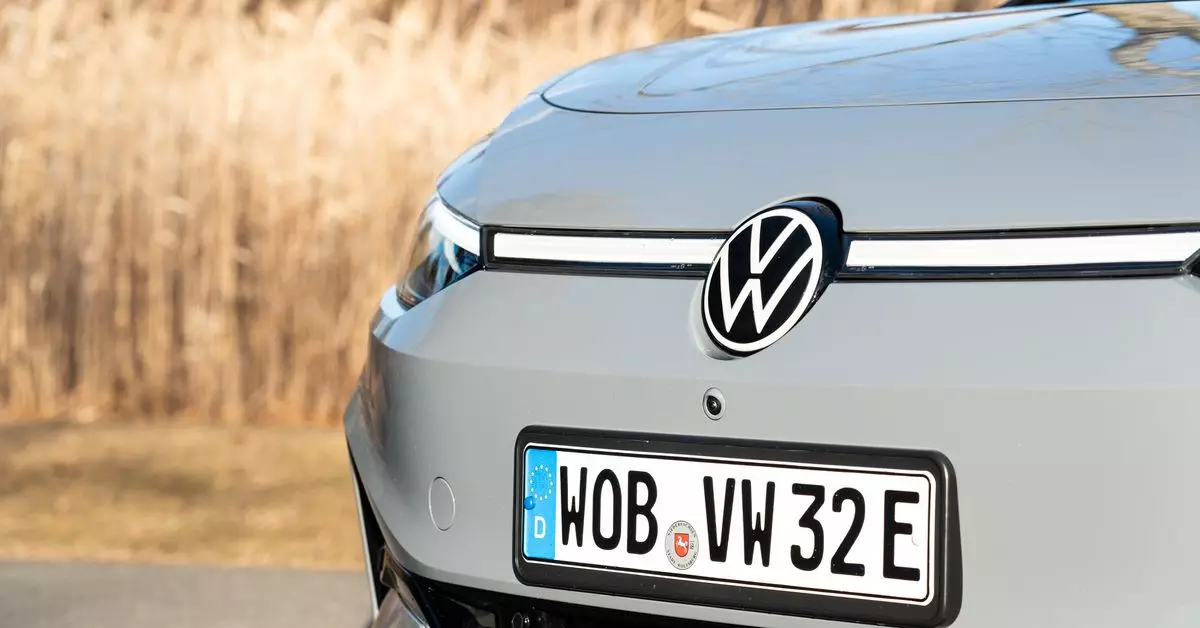In an alarming report that highlights the significant risks associated with modern automotive technology, a substantial data leak involving approximately 800,000 electric vehicles from Volkswagen has come to light. This revelation, disclosed by the prominent German news magazine Der Spiegel, has raised serious questions about how secure consumer data is within the automotive sector. The leak stemmed from the proprietary software powering these vehicles, ultimately allowing potential malicious actors to track drivers’ movements with precision.
The implications of such a breach are profound, particularly as more drivers transition to electric vehicles (EVs) and smart technology becomes ubiquitous within the automotive landscape. The fallout from this incident serves as a stark reminder of the vulnerabilities inherent in the systems that manufacturers like Volkswagen implement, whose brands also include Audi, Seat, and Skoda. Given that Volkswagen has been a pivotal player in driving the EV market forward, the exposure of this data raises alarms not only for the company but also for the entire sector.
The Nature of the Data Exposed
Investigative reports indicate that the breach was facilitated by a weakness in the software developed by Cariad, a subsidiary devoted to Volkswagen’s digital and software activities. The exposed data was stored on Amazon’s cloud service, highlighting a growing trend where data sovereignty is increasingly precarious as more businesses rely on third-party storage solutions. The data leak reportedly contained sensitive information including the times vehicles were activated, and in some cases, personal details such as driver names, email addresses, and even home addresses.
Most concerning, however, is the accuracy of the location tracking, where the positions of around 460,000 vehicles were disclosed with a startling accuracy of ten centimeters for Volkswagen and Seat models. Audi and Skoda vehicles were not far behind, with geographical vagueness extending to around 10 kilometers. Such precision poses a severe risk, leaving these drivers vulnerable to stalking or more sophisticated forms of targeting by cybercriminals.
Whistleblower Intervention and Wider Implications
The exposure of this data was primarily prompted by a whistleblower’s alert to Der Spiegel and the European hacking collective, Chaos Computer Club. This incident exemplifies the importance of accountability and transparency within large corporations, especially in a data-driven age. The whistleblower’s actions remind us of the crucial role that awareness and vigilance play in safeguarding sensitive consumer information.
Beyond the immediate ramifications for Volkswagen and affected drivers, this incident emphasizes a broader industry concern: the need for robust cybersecurity frameworks within the automotive sector. With manufacturers increasingly harnessing technology for convenience and efficiency, the critical attention to data security is often relegated to the background, thereby placing consumers at an unwarranted risk.
The Volkswagen data leak serves as a cautionary tale for both consumers and manufacturers alike. It highlights an urgent need for a reevaluation of practices regarding data security in the automotive industry. Policymakers and industry leaders must take proactive steps towards implementing stringent safeguards to protect consumer data, ensuring that technological advancement does not come at the cost of personal privacy and safety. As the world shifts toward greater reliance on electric vehicles, understanding and addressing these vulnerabilities will be vital to maintaining consumer trust and safe mobility solutions.

